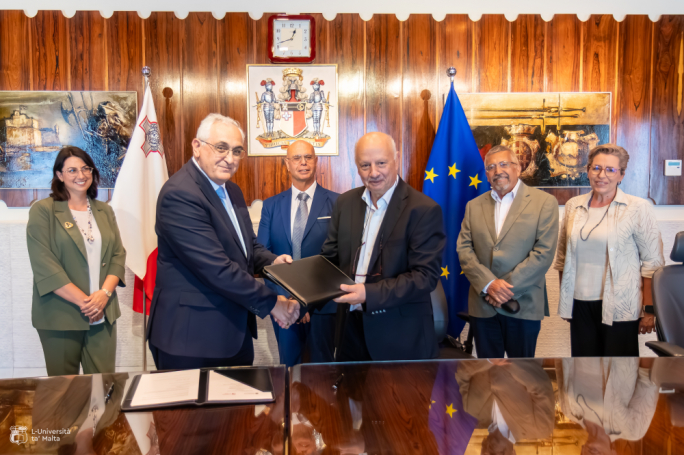Nightclubs keen to reopen with social distancing rules
Lower music volumes and a lounge-style experience could allow clubs and bars to reopen, but distancing will be key

As Malta lifts its COVID-19 restrictions, the reopening of nightclubs and bars could be a possibility if certain social distancing measures are put in place, entrepreneur Philip Fenech has said.
With the spread of the coronavirus on the island having been brought under control, the government last Friday gave restaurants the green light to restart operations.
Fenech told BusinessToday that nightclubs and bars could also start operating again if they transformed the experience they offered into one which was more similar to that typically provided by a lounge, with patrons seated at a certain distance from each other and receiving table service, and with music volume levels kept relatively lower than usual.
Playing music at levels which allows people to converse without needing to shout to hear each other - and hence lowering the risk of saliva particles being projected far into the air - would be one of the important measures which nightclubs would have to put in place, the Chamber of SMEs deputy president proposed.
He highlighted that people in clubs tend to have to speak into each others' ears to make themselves heard. But, if music is kept lower, this would not be needed.
Moreover, patrons could be seated on sofas placed at a certain distance apart, and would be able to order drinks to their table through a waiter service instead of going to the bar - as is the new regulation for restaurants and social bars.
When it comes to the dancefloor, he said clients could dance in a more solitary manner, some distance away from each other. Line markings on the floor could also be used to guide clubbers as to how far they should stay from one another.

These were amongst the suggestions put forward by nightclubs, which are keen to reopen, Fenech said.
He acknowledged, however, that it would be a challenge to implement social distancing in clubs, which have always been considered places for socialisation and dancing.
"Social distancing in clubs won't be easy. The leisure industry is based on social intimacy, which is the opposite of social distancing. The clubbing experience is an emotional expression for people, allowing them to dance, hug, kiss and hold each other's hands. Nightlife is essentially an escape route for people's tensions," Fenech said.
"In spite of this, it is still possible to draw up a model within which nightclubs can operate," he said, however.
"If there is a DJ or live music at the club, there could be distancing put in place amongst the crowd listening. People could dance on an individual basis, creating a sort of 'independent dance'."
Fenech underlined that it would be essential for people to be disciplined and obey the rules.
"It's very important that people understand that they can't go back to the practices we had before. We must change the dynamic of things. Even after having had a drink or two, people have to abide by the rules to prevent the spread of the virus."
"Such measures can be seen as killing the fun, but it's only until we get used to this new system. People have already adapted and made lots of adjustments. Until a few months ago, people would shake hands, hug and kiss when meeting. Now we avoid this sort of contact altogether," he said.
Putting such a new dynamic in place would allow nightclubs to still create a good atmosphere and hype, with patrons sitting on sofas, enjoying music at lower volumes, and dancing while maintaining a certain distance from each other, he emphasised.
"For this to work, it won't only be a question of management taking precautions and reminding clients to maintain social distancing. This could end up causing some tension. Rather, the clients have to do their part and obey the rules," he reiterated.
Fenech went on to highlight that over the past weekend, some lidos which were authorised to reopen but which also have a lounge area for entertainment, have experimented with a similar model.
"It's already been tested over the weekend, and there are indications that it worked. The next step, going forward, would be to fine-tune the model," he added.
Fenech also reminded that such interim restrictive measures could eventually be lifted if hopefully the virus is controlled or eradicated.






